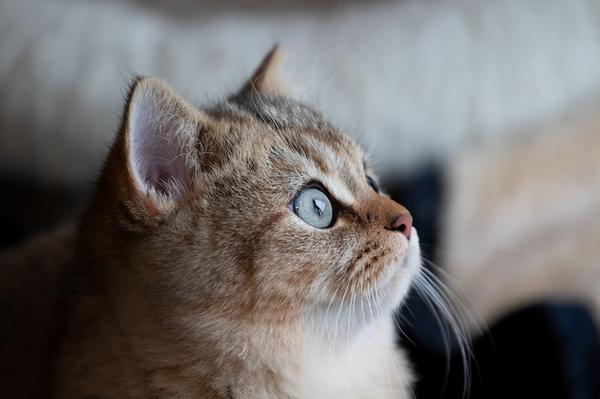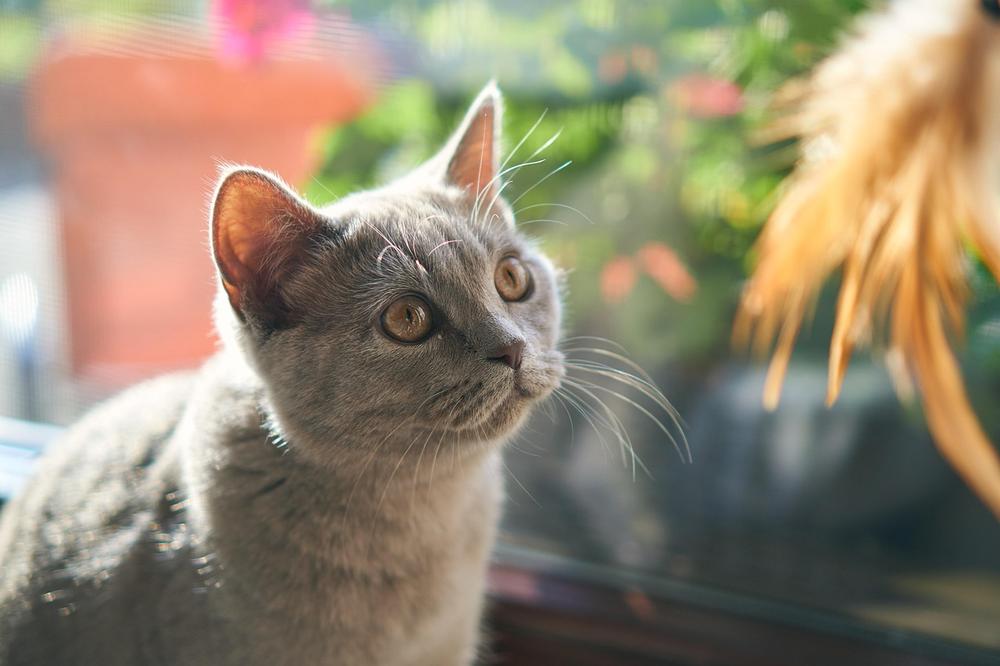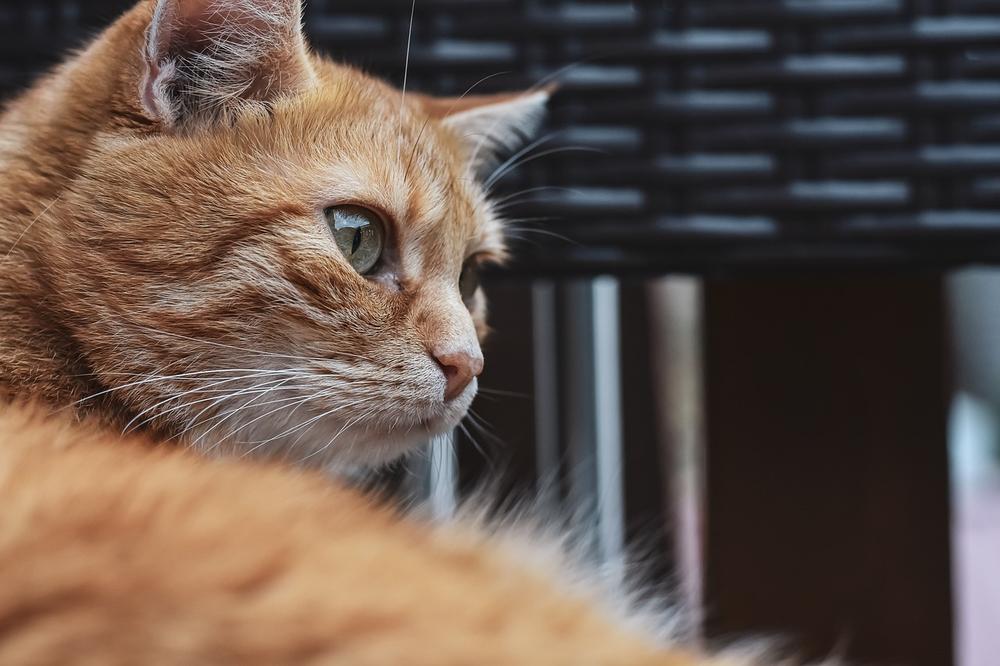Why Is My Cat Losing Hair? (+ Natural Remedies & More)

Visualize this:
You're sitting on the couch, stroking your beloved cat's fur, when you notice something alarming.
Clumps of hair are scattered on your lap, and your heart sinks.😢
You start to worry, questioning if your precious feline is in danger.
Will they be okay?
Are there any remedies for those mysterious cat scabs?
Take a deep breath, and let's embark on a quest for answers.
Natural Remedies for Cat Scabs and Hair Loss
When it comes to your cat's scabs and hair loss, there are some natural remedies you can try.
Now, I'm no vet, but here are a few things that might help you out:
- Give your cat more Omega-3 fatty acids in their diet. This can make their skin and fur healthier. 😺
- Figure out what's causing the scabs and hair loss, then get rid of it. It could be itching, discomfort, stress, allergies, parasites, or other health issues.
- Make sure your cat doesn't make things worse by scratching or licking too much. Find ways to keep their stress levels under control.
- Create a calm and relaxing environment for your cat. This can help reduce their urge to scratch and lick excessively.
- Talk to a vet for professional advice and recommendations on treatments that suit your cat's needs.
Every cat is different, so something that works for one might not work for another.

But giving these natural remedies a shot might greatly improve your cat's skin and fur condition.
Main points I'll expand upon further down this article:
- Alopecia in cats can manifest as bald patches or patchy fur.
- Congenital factors and diseases can cause hair loss in cats.
- Accurate diagnosis requires a detailed history and examination, as well as laboratory tests.
- Excessive shedding without bald patches may be a natural stage.
- Common causes of hair loss in cats include skin infections, hormonal imbalances, and inflammatory disorders.
- Allergies, flea allergy dermatitis, and scabies can lead to hair loss and scabs.
- Topical treatments, such as steroid creams, can help alleviate itching.
- Acquired hair loss in cats can be caused by various diseases and external factors.
- Treatment for hair loss depends on the underlying cause and specific diagnosis.
- It is important to consult a vet if you notice any changes in your cat's fur.
Now, you might be wondering how to determine the specific cause of your cat's hair loss and scabs.
Well, in the next section, we will explore the different types of alopecia in cats and delve into the diagnostic methods used by veterinarians to identify the underlying problems.
Trust me, it's fascinating!
Finding the Root Cause of Alopecia in Cats
Finding the cause of hair loss in cats can be tough.
There are many factors to consider and each cat may have a different issue causing the problem.

To help you figure out why your furry friend is losing their fur, here are some important things for you to know:
- Check their history and do a physical exam: Looking at your cat's medical history and giving them a thorough once-over can give you some clues about possible causes.
- Watch out for skin infections or parasites: During the examination, keep an eye out for signs of infections or parasites on their skin. These nasty critters can lead to hair loss.
- Consider getting some lab tests done: Sometimes, smears, cultures, flea combing, skin scrapes, or even skin biopsies might need to be done to rule out certain conditions or infections.
- Give elimination diet a go: It might be worth trying an elimination diet to see if your cat has any food allergies that could be causing the hair loss.
- Know the different types of alopecia: Familiarize yourself with the various types of alopecia, like hereditary alopecia, pinnal alopecia, and preauricular alopecia. They can show up in symmetrical or random patches on your cat's skin.
Hair loss in cats should never be shrugged off.
It often indicates an underlying issue that needs your attention.
And of course, if you're worried about your cat's hair loss and wondering how long it takes for their fur to grow back after surgery, I have the perfect resource for you.
Explore my article Does Cat Hair Grow Back to find all the answers you need and put your mind at ease.
You won't want to miss it!
Common Skin Conditions That Cause Hair Loss in Cats
Preventing hair loss in cats starts with flea prevention
Let's talk about hair loss in cats.
It’s more common than you might think, and there are several skin conditions that can cause it.
One of the main culprits is flea allergy dermatitis.
Those pesky fleas can really mess up your cat's skin!
To protect your furry friend, ensure you use regular flea prevention products.
Common skin conditions that lead to hair loss
There are a few other skin conditions that can result in hair loss for your feline companion.
These include ringworm and fungal infections, as well as hormonal imbalances and elevated steroid levels.
When these annoying issues come up, your cat's hair suffers.

Inflammatory disorders like bacterial, fungal, or parasitic infections are also big factors.
Even traumatic injuries and poisonings can lead to hair loss. And let's not forget about allergies... Flea allergy dermatitis is a major one.
If your cat is experiencing hair loss due to these skin conditions, what can you do?
Well, first things first, check for any scabs on your cat. They might be a sign of ringworm, mange, or miliary dermatitis.
Make sure to promptly check for fleas, mites, and lice so you can tackle the problem head-on.
When it comes to treatments, there are topical options like steroid creams that can help relieve itching and discourage scratching. But always consult with your veterinarian before trying any treatment on your fluffy buddy.
They'll provide you with the best advice and recommendations specifically tailored to your cat's needs.
And now let me share some additional information on how you can address hair loss in your beloved feline companion.
Other Causes of Hair Loss in Cats
If your cat is losing hair, there could be several reasons for it.
Here are 10 possible causes:
- Your cat might be anxious and grooming too much.
- It could also be allergies to food or something in their environment.
- Fleas can cause itching and hair loss in cats.
- Nervous disorders can lead to hair loss as well.
- Pain from an injury or an underlying condition can result in hair loss.
- Infections on the skin can cause your cat to lose hair.
- Hormonal imbalance might be another cause.
- Hair follicles can be affected by cancer, leading to hair loss.
- Neuropathic pain can contribute to hair loss too.
- Stress can have a big impact on your cat's hair. 🐱
To help address your cat's hair loss, try these measures:
- Engage your cat in regular playtime and activities to reduce anxiety.
- Treat fleas and talk to a vet about allergies.
- Keep an eye on scabs and consider changing your cat's diet if allergies don't improve.
- Consult with a veterinarian for proper diagnosis and treatment options.
- Ensure that your cat has a clean and stress-free environment for their overall well-being.
Paying close attention to your cat's needs and seeking professional guidance are crucial for effectively managing their hair loss.
Effective Treatments for Cat Hair Loss
Here's what you can do to treat your cat's hair loss:
- Try different grooming techniques like brushing or using special combs to encourage hair regrowth. It stimulates their hair follicles and helps the hair grow.
- Treatment options depend on the cause of the hair loss. If it's because of skin disorders, thyroid imbalance, or hormonal issues, there are medications and topical treatments available.
- Behavioral issues can also lead to hair loss in cats. So, using behavioral modification treatment can be effective in solving the problem.
- If there are any injuries, you can protect them by bandaging them up. This prevents further damage and also stops the cat from licking ointments off the wounds. Elizabethan collars can be used too, to avoid biting at the injuries.
- In some cases, stress can cause hair loss in cats. Antidepressants may help manage this type of hair loss.
Don't use sticky substances that might worsen itching or cause harm.
And ensure to change the bandages daily for proper healing and to prevent any complications.
By following these tips and treatments, you'll give your cat the best chance of getting back a healthy and full coat of fur.
When to Seek Veterinary Attention for Cat Hair Loss
To ensure your cat's hair loss is properly addressed, here are 10 steps you can take:
- Take note of any changes in your cat's behavior or overall health.
- Keep track of any alterations in your cat's fur, such as bald patches or thinning hair.
- Document any accompanying symptoms your cat may be experiencing.
- Contact your vet if you notice any significant changes in your cat's fur.
- Inform your vet about any other symptoms your cat may be displaying.
- Be aware that hair loss can be a symptom of serious underlying conditions.
- Understand that addressing hair loss promptly is crucial for your cat's well-being.
- Don't hesitate to reach out to your vet with any concerns about your cat's health.
- Remember that some vets may not respond to inquiries through online forms.
- In cases where finances are a concern, look into emergency appeals that provide assistance for veterinary care during difficult times.
You should understand that prevention is key when it comes to maintaining your cat's health.

By staying observant and seeking veterinary attention early on, you can ensure your cat receives the necessary care they deserve.
And that wraps up today's article.
If you wish to read more of my useful articles, I recommend you check out some of these: Can Cats Overdose on Catnip, How Much Does a Cat X Ray Cost, Should I Change the Bedding After Cat Gives Birth, Can You Shave a Cat to Get Rid of Fleas, and Can Cats Eat Silverfish
Talk soon,
-Sarah Davis